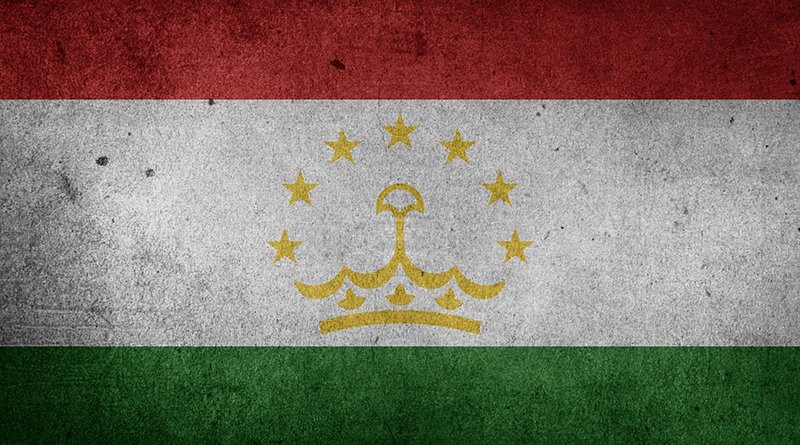In Jail For A Joke: Stifling Of Independent Voices Continues In Tajikistan – OpEd
By IPHR
This report, which covers developments affecting the freedoms of expression, association and peaceful assembly in Tajikistan for the period April to July 2021,was prepared by International Partnership for Human Rights (IPHR) for the CIVICUS Monitor.
The muzzling of independent media is part of a broader trend of growing authoritarianism in Tajikistan with the authorities increasingly regarding journalists who ask probing questions, attempt to promote transparency and create space for public debate as a threat to their hold on power.
Recently introduced measures providing for full state control over the country’s independent television and radio stations threaten to exacerbate the situation for independent media even further.
In addition, authorities continued to restrict citizens’ rights of access to information. Journalists often complained about lack of access to information, while government officials were reluctant to communicate with journalists and many media inquiries wentunanswered. The government introduced a draft law “On Access to Information on the Activities of Courts” which was supported by deputies of the lower chamber of parliament in May 2021. Civil society activists and human rights defenders are concerned that the draft law does not meet international standards and will further restrict journalistic coverage of court processes.
The April 2021 border conflict between Tajikistan and Kyrgyzstan again demonstrated the unwillingness of the relevant authorities to ensure access to information in the country as, during the first nine days of conflict, the authorities failed to disseminate any information about the events or the injuries and casualties, which contributedto the spread of false rumours on social media.
This increasing challenge of access to information, together with the suppression of freedom of expression in connection with reporting on COVID-19, has created a heightened climate of fear among journalists and health workers, making it very difficult to assess the true extent of the pandemic. Up until May 2021, the authorities maintained that no further COVID-19 cases were reported since the President declared Tajikistan’s victory over the infection on 26th January 2021. However, independent media reported that hospitals across the country are treating COVID-19 patients, with doctors being forced not to identify them as such. Laboratories in the country reportedly therefore only issue negative tests.
It was not until late June 2021 that the Ministry of Health admitted that there were new cases of COVID-19, and three weeks later, on 12th July 2021, the government’s Corona virus taskforce announced a total of 13,834 infections and 103 deaths.
Many observers mistrust these official figures and point out that the overall mortality rate showed a very different picture of the situation: In 2020, 8,649 more people died than in 2019.
In a separate development, the tax authorities attempted to narrow the space for civil society by harassing NGOs through the arbitrary application of different tax laws: in January 2021, the tax authorities imposed penalties on the Lawyers’ Association of Pamir (LAP) requiring it to pay income tax on grants received from international structures. Tax inspectors claimed that grants received over the past two years had not been registered with the State Committee on Investments and State Property. However, the Law on Public Associations provides that foreign grants are subject to registration in the “registry of humanitarian assistance to public associations” at the Ministry of Justice and not with the Investment Committee. LAP lodged three court appeals against the Tax Committee ruling and its inspection procedure. Local civil society organisations are concerned that if the LAP does not win the case against the Tax Committee, it could have wider repercussions for other civil society organisations.
Of continuing concern is the persecution of human rights lawyers. On 14th June 2021, human rights lawyer Abdulmajid Rizoyev was sentenced to five and a half years’ imprisonment for “public calls to carry out extremist activity through the media or the Internet”. The charges are based on some ironic Facebook posts from 2019 and 2020 which could be linked to the elections, and which the Prosecution alleged were “hidden calls for extremism.”
In July 2021, the Tajikistani Prosecutor General’s Office announced that human rights lawyer and Chairman of the Tajik Migrant Centre in Moscow, Izzat Amon, had been accused of fraud of 630,000 rubles (approximately 7,250 EUR) and 1,000 USD. Twelve people had allegedly complained that they had not received legal services after paying Amon.Four months earlier, on 25th March 2021, Izzat Amon was abducted in Moscow and was forcibly transferred to Tajikistan. In the past, Izzat Amon had repeatedly criticised the Tajik government for failing to protect the rights of its citizens in Russia.
The authorities also continued with the persecution and silencing of the opposition. Former Democratic Party activist Rustam Mamajonov was sentenced to seven years’ imprisonment for allegedly distributing video footage of opposition activist Sharofiddin Gadoev. And imprisoned lawyer Saidnuriddin Shamsiddinov faces new charges of having links with the banned political opposition group “Group 24”. Shamsiddinov’s lawyer denied that his client has been in contact with this group. If convicted, Shamsiddinov faces up to 10 years in prison.

